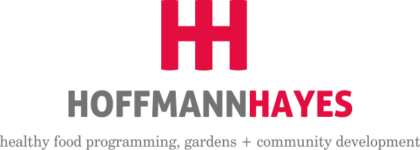In this Food Makers & Changers interview, we get to know one of Canada’s great food movement leaders, Wayne Roberts.
About Wayne:
Wayne Roberts is one of Canada’s leading good food practitioners and analysts. He managed the Toronto Food Policy Council from 2000 to 2010, a time when the TFPC inspired some 200 food policy councils across North America. Since 2010, he has served on leadership bodies of FoodShare, Unitarian Service Committee-Seeds of Survival, Sustain Ontario, Alternatives Journal and the Laurier Centre for Studies in Sustainable Food Systems, and has written on global food issues (The No-Nonsense Guide to World Food) and urban food issues (Food for City Building:A Field Guide for Planners, Actionists and Entrepreneurs.) He is invited to speak on food and city issues around the world.

What is one change you’d like to see happen within the food system and why?
I would like to see the food movement with a huge base of support that is prepared to challenge governments and corporations that do the wrong thing by food security and food sovereignty, welcome government and corporate programs that move in the direction of the right thing, and take practical actions to bring such programs into being whenever feasible
If you could only have three vegetables for the rest of your life, what would they be and why?
I have to choose carefully, because i don’t know how long I will have teeth that can handle crunchy veggies. I really enjoy mushrooms now, if the classify as veggies. I’ve always enjoyed brussels sprouts. And sweet potatoes, because they’re sweet and good for you.
If you could only have one non-local food for the rest of your life, what would it be?
My one non-local food would be cacoa, which is a food, though, like coffee, was treated as a drink by its originators in ancient Mexico. It’s not really non-local, because the birds that migrate there in winter become local in Canada a few months later, and it can be transported to Canada by sail and rail, taking up as little transportation energy as many local foods.
Where do you stand on local vs organic vs simply eating whole foods? What are your personal priorities when it comes to your own diet?
I eat as much local and sustainable and organic as I can. I prefer not to choose one way or the other, among local, sustainable and organic, and I’ve found I can eat very well balancing all three — except at restaurants, where I eat whatever I can afford.
What would surprise most people about your history with food (and/or embarassing food stories)?
In 1971, I had 2 Big Macs for Xmas dinner, and thought they were great
Do you have any advice for newcomers to the food movement, and how they can make a contribution?
There are endless ways of working to improve food, and they are all useful in one way or another; so choose the way that most suits your personality
A quick summary of your approach to community development
True community development is really about community empowerment because it enables people to either directly solve their problems by working together on projects, or by establishing government-funded programs that include community residents as participants and members, not clients or customers.
